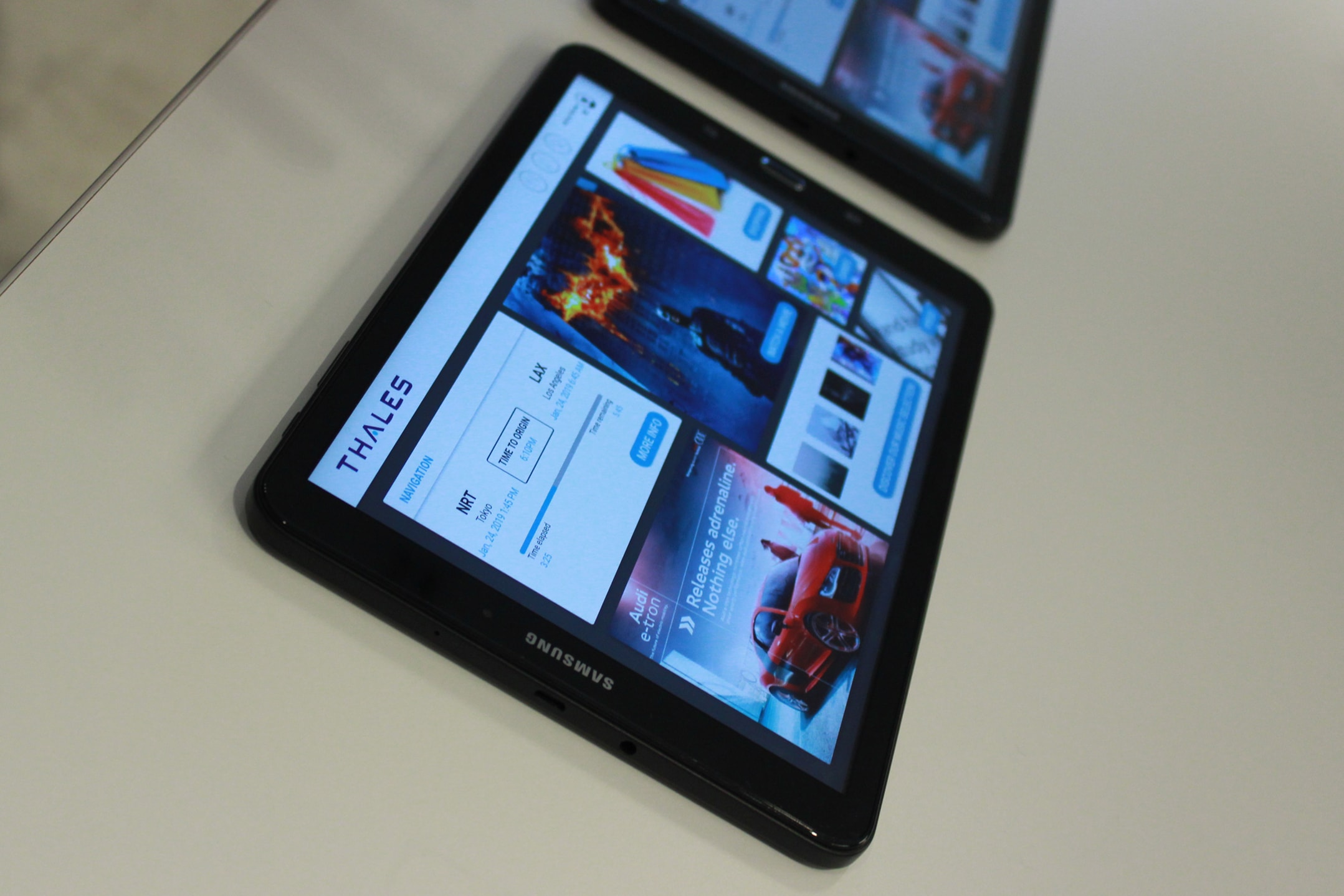Thales to Launch IFE Targeted Advertising This Year
Share

At an event at its AI hub in Montreal yesterday, Thales revealed plans to launch the targeted advertising component of its InFlyt 360 platform this year, with the content recommendation engine to launch in 2020.
An unnamed airline will begin targeting passengers with ads via its in-flight entertainment (IFE) system, using Thales’ InFlyt 360 platform, in 2019. The news was announced yesterday in Montreal at Thales Media Day, which focused on how artificial intelligence will transform various industries, including aviation, rail transport, defense and cybersecurity.
Is Thales competing w/ Google,Facebook,Amazon w/respect to #AI? Not really, says @Patrice_Caine , CEO @thalesgroup. “They are not addressing mission and safety critical environments … we must master the technology and also understand how the customer operates.” #ThalesMediaDays pic.twitter.com/FWhqHJJAye
— Kristina Velan (@kristinavelan) January 24, 2019
“Today, the way the airlines advertise, they really do not have an understanding of the behavior of the passengers and we’re aiming to change that,” said Peter Hong, partnership development manager, Thales InFlyt Experience.
The advertising component of the InFlyt 360 platform, which Thales introduced at Aircraft Interiors EXPO in April of 2017, is being developed by a team of eight based at Thales’ Centre of Research and Technology in Artificial Intelligence eXpertise (cortAIx) in Montreal. The portal enables the airline, or its content service provider, to target ad campaigns by parameters including destination, age, gender, frequent flyer status, outbound vs. return flight and cabin class.
“What we’re doing in terms of bringing this into the digital age, is that we’re taking the broadcast model where everyone gets the same ads … to a fully digital experience where we really maximize the value of a captive audience,” Hong explained.
A cloud-based service links the ad portal with the airline’s passenger data to show each traveler unique ads. Engagement metrics, derived via the IFE system, are fed back into the ad portal – this is where artificial intelligence comes in. An inventory forecast tool helps the airline decide whether it should launch a campaign by examining historical data and using machine learning to predict whether the desired number of impressions will be reached.

Thales claims the system will reduce ad lead time from 45 days to five days, triple the value of ads and increase an airline’s advertising revenue six-fold. It’s possible that more airlines will launch the feature this year.
“We’re in deep discussions with three of our airline customers regarding targeted advertising,” said Cecil Andre, senior product line manager, IFE UX/UI, Thales InFlyt Experience. “And we’re in discussions with all of our customers about the full potential of InFlyt 360 – it’s not only for luxury airlines, it’s for the entire market.”
Thales plans to launch InFlyt 360’s content recommendation engine in 2020. Using similar technology as the targeted advertising portal, it will provide personalized movie, shopping and destination content suggestions to passengers. It will be a real “Neflix experience,” according to Andre.

“[The airlines we’re in discussions with] see the potential, not just in the advertising, but in the underlying foundation of the framework, the data flow,” Hong explained.
Passengers will have the option to opt out of receiving personalized ads and content. “Of course we are working to be compliant [with privacy laws], especially GDPR,” Andre said. Thales expects that, if the ads and content are relevant and timely, passengers will want to opt in.
“This is no longer just a vision, it’s becoming real now,” Andre said. “It’s a game changer in the IFE industry.”


